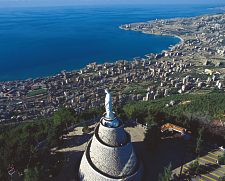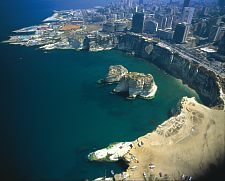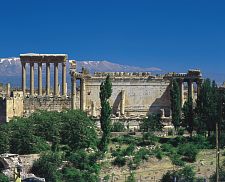|





| |
Tocqueville’s
Lessons in Democracy
by Nicolas Tenzer*
It seems appropriate that, due to the Iraq war, the
world has been debating the nature of democracy 200 years after Alexis de
Tocqueville’s birth. Tocqueville is justly famous for rejecting reactionary
nostalgia and regarding democracy’s triumph as our destiny, while warning
against the dangers that democracy holds for liberty. Should we still share his
worries?
Tocqueville viewed democracy not only as a political regime, but, above all, as
an intellectual regime that shapes a society’s customs in general, thereby
giving it a sociological and psychological dimension. Democratic regimes,
Tocqueville argued, determine our thoughts, desires, and passions. Just as there
was Renaissance man and, in the twentieth century, homo sovieticus, “democratic
man” is a form of human being.
For Tocqueville, democracy’s systemic effects could lead citizens to deprive
themselves of reasoned thought. They could only pretend to judge events and
values on their own; in reality, they would merely copy the rough and simplified
opinions of the masses. Indeed, what Tocqueville called the hold of “social
power” on opinion is probably strongest in democratic regimes – a view that
foretells the growth of modern-day demagogy and media manipulation.
Tocqueville believed that there are no effective long-term constraints on this
tendency. Neither local democracy nor small societies, neither governmental
checks and balances nor civil rights, can prevent the decline of critical
thought that democracy seems to cause. Schools have the power to be little more
than enclaves from the corrosive strength of social influences on how the mind
works. Similarly, while Tocqueville thought that pursuing virtue as the ancients
did, or having a religious faith, could sometimes elevate the soul, both
conflict with the democratic ideal if they become officially prescribed in
public life.
In this sense, Tocqueville’s intellectual heirs include the neo-Marxist
theorists of the Frankfurt School, as well as Hannah Arendt, all of whom feared
above all the disintegration of reason in modern societies. Indeed, the French
philosopher Marcel Gauchet entitled a recent book Democracy Against Itself. The
democratic way of life, these writers argue, tends to destroy original thought
and to suppress “high” culture, yielding a mediocrity that leaves citizens
vulnerable to democracy’s enemies.
But, while history is replete with murderous regimes applauded by cowed and
deceived masses, the greater risk for democratic nations is that their citizens
withdraw into apathy and short-term thinking for immediate gratification. The
past – despite rituals that seek to commemorate historic moments – is
obliterated by an addiction to the now and the new. Even the supposedly
well-educated ruling class is subject to this bewitchment. The essential problem
of the democratic mind is its lack of historical consciousness.
Do the defects of democracy really mean, as Tocqueville claimed, that resigned
pessimism is the only – realistic but unsustainable – path open to us? I don’t
think so. There are means to fight against what might be called today’s growing
“democratic stupidity.”
The first defense is to push for an educational system that really forms
critical minds, namely through the (nowadays) largely neglected subjects of
literature, history, and philosophy. If the informed and critical citizenry that
democracy requires is to be formed, our schools must stop pandering to the
latest popular fads and begin to sharpen the analytical capacities of students.
The biggest impediment to such an education are the mass media, with its
tendency to cultivate superficiality and amusement. Many people nowadays spend
more of their lives watching television than they do in classrooms. The
passivity that mass media encourages is the polar opposite of the active
engagement that democratic citizens need. But it is hard to imagine that the
mass media (other than quality newspapers) would, of their own volition, become
instruments of an education that enhances citizens’ critical capacities.
This concern about mass media is no mere elitist scorn for popular culture. The
question is not one of popularity alone – after all, Mozart was popular in his
day, and Shakespeare’s plays attracted the poor as well as the rich – but of
mass culture’s refusal to challenge and provoke. The result of the failure is a
generalized indifference and passivity in audiences.
Indeed, for a long time a globalized media culture, one unable to inspire the
capacity for critical thought or create elevated feelings, has been on the rise.
It is a culture that, through its carelessness, threatens democratic freedom
because it fails to create any sense of obligation – to society, to history, to
community.
Is it too late to do anything about a culture that so deadens the spirit?
Tocqueville despised the elites of his time for their complacency in the face of
the deracinating force of mass democracy. Will the myopia of our leaders also
serve as an agent of his disquieting prophecy?
*Nicolas Tenzer is President of the Centre d’étude et de
réflexion pour l’action politique (CERAP), director of the journal Le Banquet.
His most recent books are Les valeurs des Modernes. Essai sur l’écroulement
politique du nouveau siècle and France: la réforme impossible?
Copyright: Project Syndicate/Institute for Human Sciences, 2006.
|